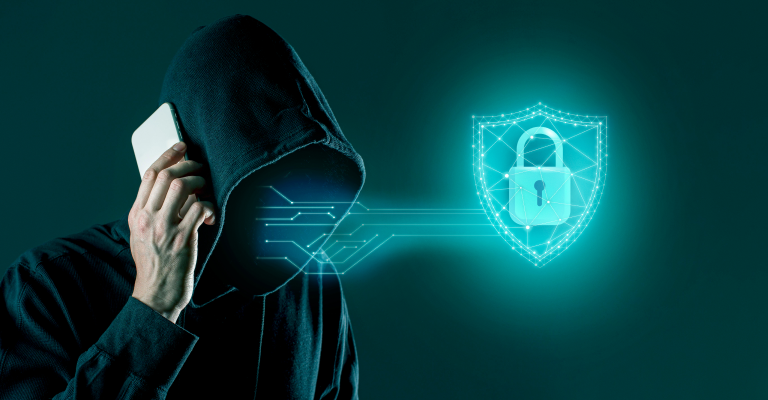Interactions increasingly occur in the virtual realm, ensuring trust and security in our digital identities is paramount. Decentralized identity and verifiable credentials emerge as two groundbreaking concepts poised to revolutionize the landscape of digital interactions.
Let’s delve into these concepts, explore their integration, and understand how they can fortify the foundation of trust in our online interactions.
Elaborating Decentralized Identity and Verifiable Credentials
In today’s digital landscape, traditional identity management systems often fall short in addressing the evolving needs of security, privacy, and user control. Centralized systems, where user data is stored and managed by third-party entities, present inherent vulnerabilities such as single points of failure and susceptibility to data breaches.
Decentralized identity offers a paradigm shift by placing individuals at the center of identity management. At its core, decentralized digital identity empowers users with control over their digital identities through the use of decentralized identifiers (DIDs) and distributed ledger technology (DLT) such as blockchain.
DIDs serve as unique identifiers anchored on decentralized networks, enabling individuals to manage and authenticate their identities without relying on intermediaries. On the other hand, verifiable credentials provide a framework for issuing, presenting, and verifying digital credentials in a secure, tamper-evident manner.
Built on standards such as the World Wide Web Consortium (W3C)’s Verifiable Identity Solution specification, these credentials enable entities to attest to the authenticity of information, allowing recipients to verify its integrity without relying on centralized authorities.
Differentiating Decentralized Identity and Verifiable Credentials
While both concepts share the overarching goal of enhancing digital trust, they operate at distinct layers within the digital identity ecosystem.
Decentralized identity focuses on the infrastructure and protocols for managing identities in a decentralized manner. By leveraging DLT and cryptographic techniques, decentralized digital identity enables individuals to assert control over their identities with worldwide web Consortium, authenticate themselves across various online platforms, and selectively disclose information as needed.
Verifiable credentials, on the other hand, address the issuance and verification of credentials in a decentralized environment.
These credentials encapsulate claims or attributes about an individual, organization, or thing, which can be digitally signed by issuers and cryptographically verified by verifiers, ensuring their authenticity and integrity.
Integrating Decentralized Identity and Verifiable Credentials
The integration of decentralized identity and verifiable credentials holds immense potential in fortifying the trustworthiness of digital interactions. By combining the principles of self-sovereign identity with the cryptographic assurance of verifiable credentials, it becomes possible to establish a robust ecosystem for managing, issuing, and verifying digital identities and credentials.
One approach to integration involves leveraging decentralized digital identity frameworks such as DIDs and DID documents to anchor verifiable credentials. By associating Verifiable Identity Solution with decentralized identifiers, issuers can attest to the authenticity of the credentials, while recipients can cryptographically verify their integrity without relying on centralized authorities.
Additionally, the use of selective disclosure mechanisms enables individuals to share only relevant information contained within verifiable credentials, preserving privacy and minimizing the risk of data exposure. This granular control over data sharing aligns with the principles of privacy by design and default, ensuring that users retain sovereignty over their personal information.
Importance of Privacy and Data Protection
As we navigate the integration of decentralized digital identity and verifiable credentials, it’s imperative to prioritize privacy and data protection. With the proliferation of data breaches and privacy infringements, individuals are increasingly concerned about the security and confidentiality of their personal information.
Adhering to data protection regulations such as the General Data Protection Regulation (GDPR) and adopting privacy-enhancing technologies are essential steps towards safeguarding user privacy.
By implementing robust encryption mechanisms, access controls, and data minimization practices, organizations can mitigate the risk of unauthorized access and ensure compliance with regulatory requirements.
Furthermore, fostering transparency and accountability in data processing activities builds trust among users and strengthens the integrity of the digital ecosystem. By providing clear and concise privacy policies, offering opt-in consent mechanisms, and enabling users to exercise their data rights, organizations can demonstrate their commitment to respecting user privacy and data sovereignty.
Identity Security Solution
To facilitate the adoption of decentralized identity and verifiable credentials, platforms like EveryCred offer comprehensive solutions tailored to the needs of individuals and organizations. EveryCred provides tools and resources for managing, issuing, and verifying verifiable credentials in a decentralized environment, empowering users to take control of their digital identities and participate in trusted digital interactions.
By leveraging EveryCred’s platform, organizations can streamline the issuance and verification of credentials, enhance user trust, and mitigate the risks associated with centralized identity management systems. Additionally, EveryCred fosters collaboration and interoperability within the decentralized identity ecosystem, enabling seamless integration with existing identity solutions and standards.
In conclusion, the convergence of decentralized identity and verifiable credentials heralds a new era of trust and security in our digital interactions. By embracing these concepts, prioritizing privacy and data protection, and leveraging innovative solutions like EveryCred, we can build a more resilient and trustworthy digital ecosystem for the future.
By offering a comprehensive overview of decentralized identity solution, verifiable credentials, their integration, and the importance of privacy and data protection, we aim to educate and inspire readers to explore the transformative potential of these technologies.Connect with our team to learn and integrate your identity or business credentials for decentralization.

 11th June, 2024
11th June, 2024 



